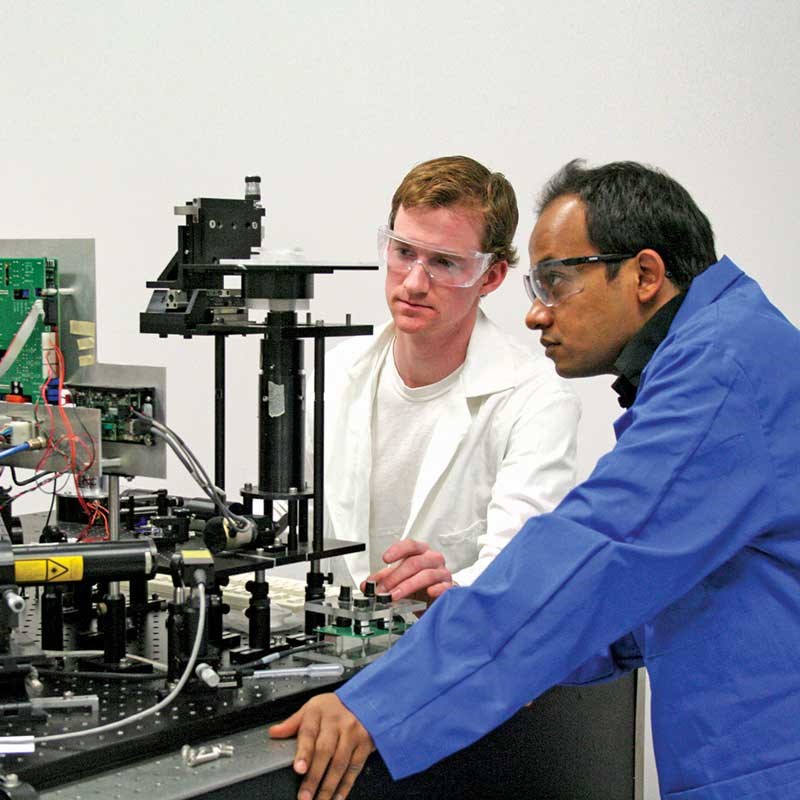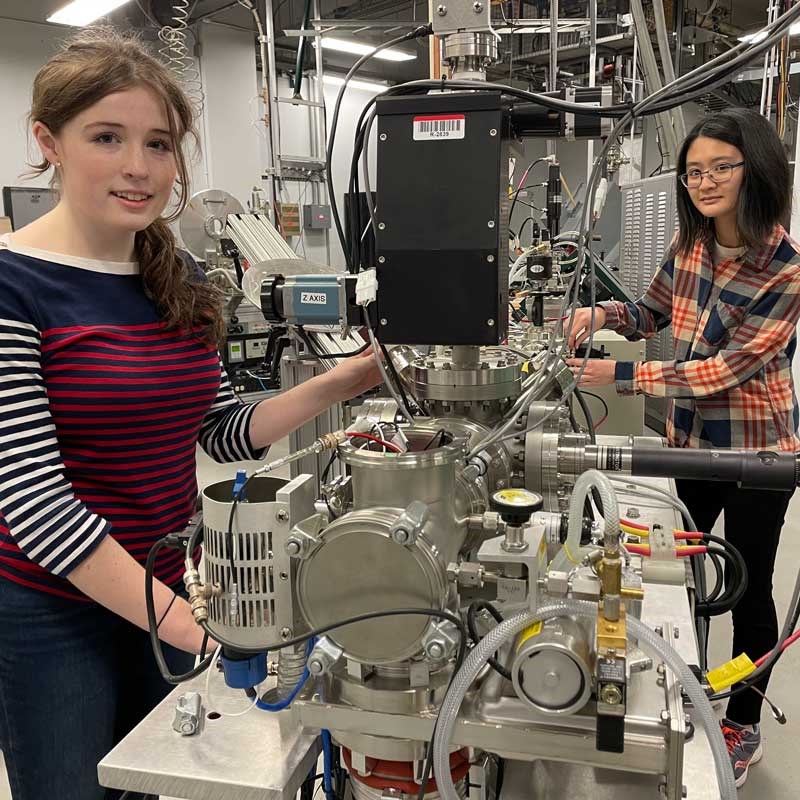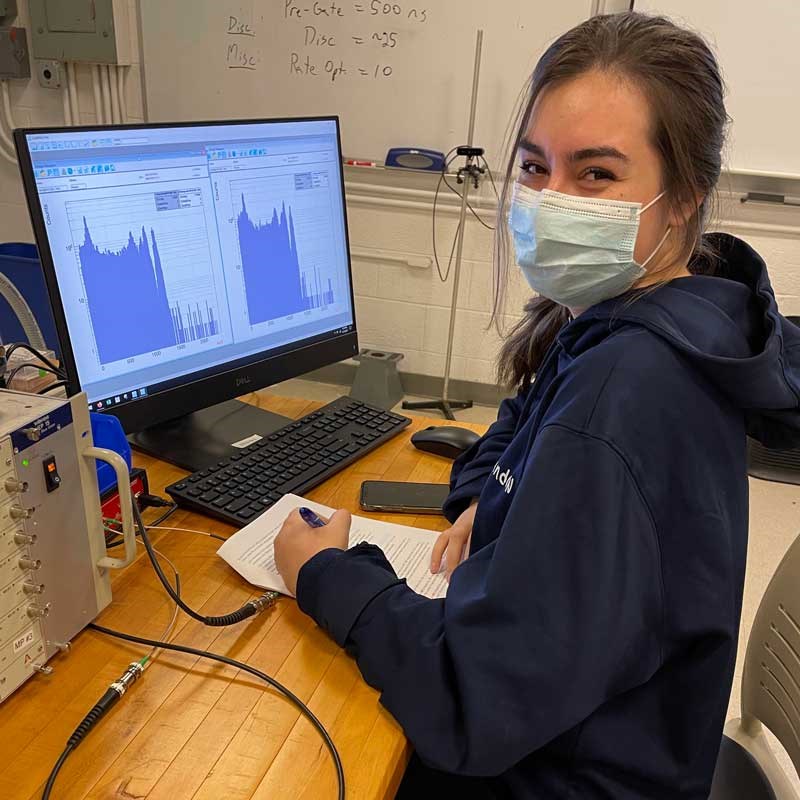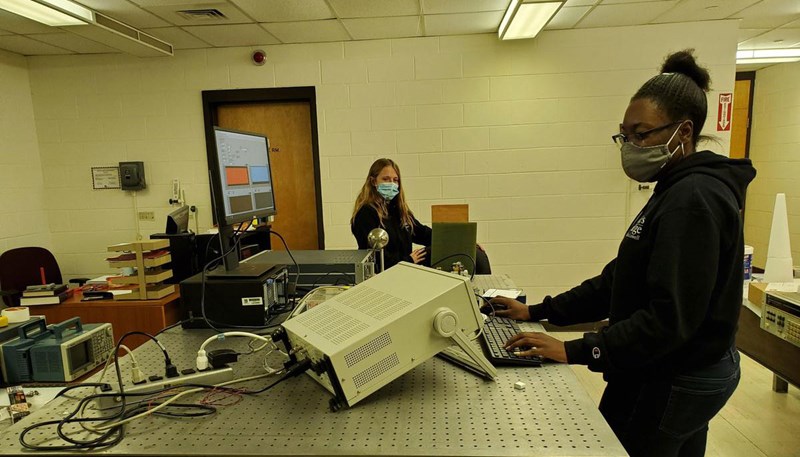What courses will you take?
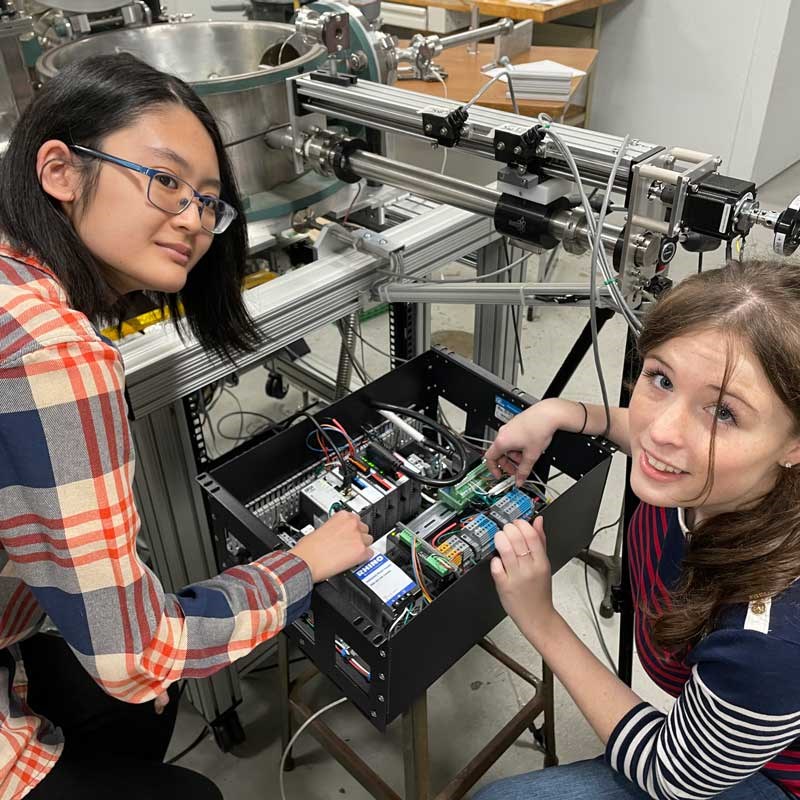
The B.S. in Engineering Physics program builds on the existing strengths and capacities of UMass Lowell’s physics department and adds in specialized engineering courses.
As a result, you can explore your individual interests, build the foundation for interdisciplinary graduate programs, and prepare for diverse careers in the engineering and technology sectors.
The Engineering Physics major has three options:
- Electrical and Computer Engineering Option, which includes a selection of required courses and elective courses from Electrical and Computer Engineering. In addition, you will take core, math and chemistry courses common to both Physics and Engineering Physics degree pathways including Application Programming, two semesters of Circuit Theory and basic Circuits Labs, and Logic Design. Courses for Electrical and Computer Engineering Option
- Mechanical Engineering Option, which includes a selection of required courses and elective courses from Mechanical Engineering. In addition, you will take core, math and chemistry courses common to both Physics and Engineering Physics degree pathways including Statics, Strength of Materials, Materials Science for Engineers, Fluid Mechanics and Heat Transfer. Courses for Mechanical Engineering Option
- Nuclear Option, which includes specialized Nuclear Engineering courses alongside fundamental physics, mathematics and chemistry classes. You will study topics such as Fluid Mechanics, Heat Transfer, Fundamentals of Nuclear Science and Engineering, Nuclear Reactor Theory and Nuclear Reactor Engineering. Courses for Nuclear Option
All seniors complete a capstone research project, often resulting in presentations at national professional meetings and/or publications in peer-reviewed scientific journals.
Visit the Academic Catalog for a complete course listing and to learn about the Physics minor.

